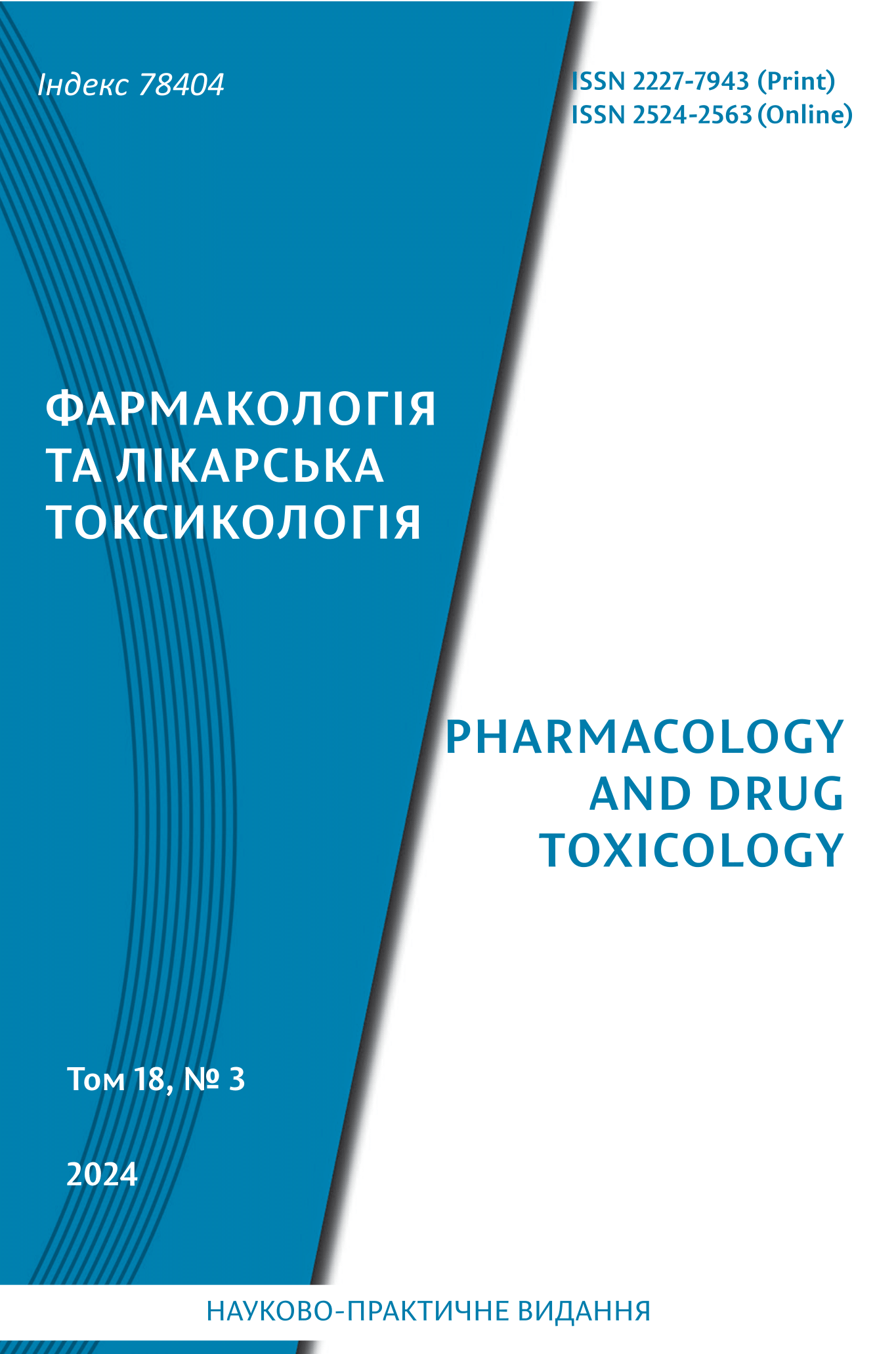Abstract
Malignant neoplasms are one of the main medico-biological and socio-economic problems throughout the world and in Ukraine. Morbidity and mortality from malignant neoplasms are constantly increasing due to unstable and unfavorable economic situation and significant aging of the population. The fatality of an oncological disease is largely determined by the metastasis of a malignant neoplasm. The ability of a malignant tumor to invade is a process in which cancer cells or their emboli move away from the primary part and penetrate into the surrounding tissues. Invasion is the first stage of a complex invasive-metastatic cascade, which further leads to metastasis. Hyperactivation of the hemostasis system, the progression and aggressiveness of a malignant tumor are interrelated processes. Therefore, the development of new therapeutic agents oriented at possible platelet targets and the search for new properties of available accompanying drugs is a promising direction of anticancer therapy. The results of modern clinical studies prove that the use of anticoagulants expands the possibility of anticancer therapy, improves the quality of life of a cancer patient, and improves the prognosis of the course of the disease. However, many aspects remain unexplored, and the search for new targets to prevent metastasis is still relevant. In this paper, we compared the effect of direct-acting anticoagulants (unfractionated heparin and low-molecular-weight heparin) on the metastatic activity of Lewis carcinoma.
The aim of the study – to evaluate the effects of direct-acting anticoagulants (unfractionated heparin – sulodexide and low molecular weight heparin – enoxaparin) on the metastatic activity of Lewis lung carcinoma and impaired blood coagulation activity (platelet hemostasis).
In order to study the antimetastatic properties of unfractionated heparin sulodexide (UFH) on the model of spontaneously metastasizing Lewis lung carcinoma (LL) in the lungs, mice of the C57BL/6 line were divided into three groups of 7 animals each. The first group – control (without tumor) and the second group (inoculated with LL carcinoma) were administered 0.9% NaCl, 0.05 ml/20 g of body weight; the third group (inoculated with LL carcinoma) was administered sulodexide at a dose of 2.0 mg/kg. LL carcinoma was inoculated at a concentration of 3 • 105 cells in 0.3 ml of saline intramuscularly into the right leg of C57BL/6 mice. Treatment of animals started on the 5th day after LL carcinoma cells inoculation. Sulodexide was administered at a dose of 2.0 mg/kg intramuscularly for 20 days. Before the start of LL cells inoculation, all experimental mice were analyzed for blood clotting time according to Morawitz. Such procedure was performed also on the 14th and 28th day of the study, which made it possible to evaluate the effect of LL carcinoma and LL carcinoma + sulodexide on the coagulation activity of the blood of experimental mice. On the 28th day of the study, the animals were eutanazied, hematological parameters were determined, the lungs were removed to count metastases, and the spleen was removed for further analysis.
According to previous studies, data on the effect of the low molekular weight heparin (LMWH) at a dose of 10.0 mg/kg on the metastatic activity of LL carcinoma were obtained. A comparative analysis of the data obtained revealed a significant decrease in the metastatic activity of LL carcinoma under the administration of direct-acting anticoagulants: UFH inhibited the number of metastases in the lungs of mice by 63.79 %, and theie volume – by 96.91%; LMWH – respectively by 60.88 and 96.88%.
Against the background of metastatic tumor growth of LL carcinoma in mice of the C57BL/6 line, a hypercoagulable state of the DVZ-syndrome І stage develops, which is characterized by a significant decrease in blood clotting time and splenomegaly, which is a consequence of increased sequestration of platelets and an increase in their splenic pool causing thrombocytopenia.
Therapy with UFH at a dose of 2.0 mg/kg and LMWH at a dose of 10.0 mg/kg was accompanied by trend to increase in the number of platelets in the blood of experimental mice against the background of metastatic tumor growth.
As to results obtained, it was established that direct-acting anticoagulants, sulodexide and enoxaparin, had no reliable effect on the size of primary tumor, but significantly reduce the number and volume of metastases. Direct-acting anticoagulants demonstrated trend to increasing platelets quantity and had no reliable effects on other studied parameters. The data obtained indicate the feasibility of further research of these drugs' antimetastatic action mechanisms.
